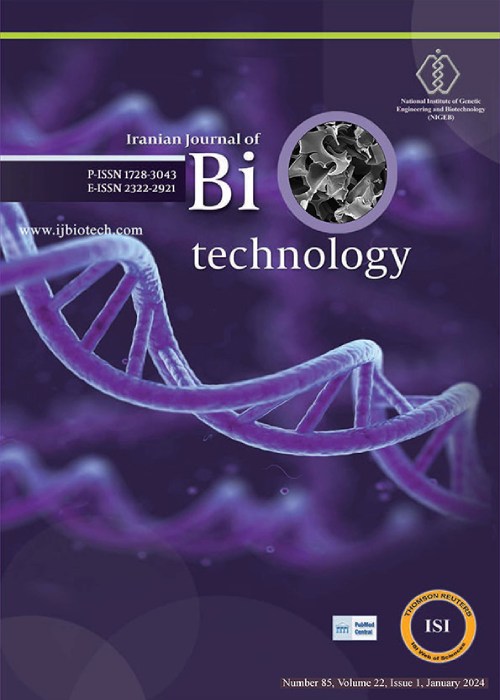Effects of Heat Shock and 2, 4-D Treatment on Morphological and Physiological Characteristics of Microspores and Microspore-Derived Doubled Haploid Plants in Brassica napus L.
Author(s):
Abstract:
Background
Stresses such as heat shock, starvation, or osmotic is essential to lead isolated microspores towards embryogenesis. Despite the effectiveness of stresses in embryogenesis, they exert adverse effects on metabolism and growth of the regenerated plants.Objectives
The effects of heat shock and 2,4-D treatment on total protein content of treated microspores, morphological and physiological characteristics of the doubled haploid (DH) plants were assessed.Materials And Methods
Buds containing mid- to late- uninucleate microspores were used for microspore culture. Microspores were isolated and cultured in NLN-13 medium and incubated at 30ºC for 14 days or treated with 2,4-D (35 mg.L-1) for 30 min to induce embryogenesis. Microspore-derived embryos were transferred onto B5 medium for plantlet regeneration. Ploidy level of the regenerated plantlets was determined using Partec flow cytometry. Spectrophotometric readings were carried out at 490, 663 and 645 nm to determine Chl a-b and carotenoids contents. TRIzol and cetyl-three-ethyl-ammonium bromide (CTAB) were used for protein extraction from microspores and leaves. Length and width of stomata and pollen grains were also photographed using light microscope (Olympus).Results
Applied stressors significantly reduced total protein content of treated microspores however, protein content and concentration of chlorophyll a and b of the DH plants were only increased by heat shock treatment when compared with the donor plant ‘Hyola 420’. In contrast, carotenoids were not affected by applied stressors. Longer and wider stomata were observed by 2,4-D treatment but, the length of pollen grains was significantly decreased following heat shock and 2,4-D treatment.Conclusions
Total protein content of cultured microspores, concentration of chlorophyll a and b, length and width of stomata of microspore-derived doubled haploid plants were significantly affected by the type of inductive stresses. However, carotenoids were more stable and not affected by applied stressors.Keywords:
Language:
English
Published:
Iranian Journal of Biotechnology, Volume:13 Issue: 2, Spring 2015
Pages:
31 to 38
magiran.com/p1465981
دانلود و مطالعه متن این مقاله با یکی از روشهای زیر امکان پذیر است:
اشتراک شخصی
با عضویت و پرداخت آنلاین حق اشتراک یکساله به مبلغ 1,390,000ريال میتوانید 70 عنوان مطلب دانلود کنید!
اشتراک سازمانی
به کتابخانه دانشگاه یا محل کار خود پیشنهاد کنید تا اشتراک سازمانی این پایگاه را برای دسترسی نامحدود همه کاربران به متن مطالب تهیه نمایند!
توجه!
- حق عضویت دریافتی صرف حمایت از نشریات عضو و نگهداری، تکمیل و توسعه مگیران میشود.
- پرداخت حق اشتراک و دانلود مقالات اجازه بازنشر آن در سایر رسانههای چاپی و دیجیتال را به کاربر نمیدهد.
In order to view content subscription is required
Personal subscription
Subscribe magiran.com for 70 € euros via PayPal and download 70 articles during a year.
Organization subscription
Please contact us to subscribe your university or library for unlimited access!


